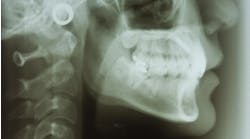Is it the Heart or Heartbreak of Feedback?
A colleague who just heard you present periodontal treatment to patient is giving you some feedback that you were too quiet, didn’t connect their motivators to the services, and you got “stuck” when the patient asked about finances.
Your breathing goes shallow and your body stiffens, your heart speeds up, and you look around to see if anyone is within earshot of this conversation. Really, you think, she’s giving me feedback!
Faced with the often-difficult experience of feedback — in our work and personal lives — many of us respond in unproductive ways. But taking in feedback from others, both positive and negative, is imperative if we are to experience the satisfaction that comes with enhanced competence and improved relations.
It is possible — and necessary — to think positively about feedback.
Typical Reactions to Feedback
When given difficult feedback, most of us find that we do one or more of the following:
All of these reactions serve to distract us from painful feelings of not being good enough, as well as the notion that we need to change in some way. But adapting to feedback — which inevitably asks us to change, and sometimes significantly — is critical if we are to succeed in our jobs, our marriages, our family relationships, etc.
----------------------------------------------------
Other articles by Hodsdon
- Director’s Message: Three simple energy shifts you can make to increase case acceptance
- Director's Message: What do passengers and patients have in common?
- Director's Message: What I am not always proud of
----------------------------------------------------
Turning “Feedback” into “Food for Thought”
Taking the dread out of receiving feedback can happen with as little as a simple twist of words (“I wonder what’s going to happen” instead of “I worry about what’s going to happen”) and a slight shift in beliefs (“All feedback is a gift”). Here are some guidelines that can help transform feedback into food for thought:
- Track your own reactions. Recognize your emotions and responses. What body sensations, thoughts, and emotions arise? Recognize that whatever arises in your mind is your own responsibility. It is not the other person’s fault you are responding as you are. You get to choose how you think and how you respond. When we own our own reaction, it opens the way for genuine communication with the other person.
- Get support. Although it may be difficult to identify, you may feel inhibited and ashamed upon hearing feedback that requires change. Ask trusted friends to listen, encourage, and offer suggestions. Work with a coach. Even in settings in which people are expected to be self-reliant (such as many jobs), it’s nearly impossible to make significant change without such encouragement.
- Listen with an open mind and heart. Begin by acknowledging that the perception of the person giving feedback is the reality that needs to be looked at. Without confirming or denying the perception of that person, simply listen and take in what he or she has to say.
- Change defensiveness into curiosity. Don’t explain or defend yourself. It may be appropriate to bring the subject up later, if explanations are appropriate. For now, though, say the three magic words: “Tell me more!” What has the person giving you feedback observed? What does that person expect or want you to do differently? Don’t assume you know what the other person means … ask questions to clarify your understanding.
- Regard all feedback as an act of generosity. Feedback can help you recognize habitual styles that may need to change. It can help you re-examine how you are living your life. It is a wonderful gift. Consider offering sincere appreciation to the bearer of feedback, even acknowledging how difficult it may have been to deliver the news.
- Focus on the message, not the packaging. There may be times when feedback is given harshly or by someone with whom we struggle, or there is a mixture of truth and personal distortion in what we are told. Forget about what package the message comes in; what is the message? How can you penetrate to the truth contained in the feedback? What can you learn? Contemplation is a critical step to integrate the message.
- Reframe the feedback. When we put feedback in a positive light, negative emotions and responses lose their grip. For example, you could see the feedback on your case presentation as a way to improve your chances of patient’s saying YES to needed treatment, leading more of your patient’s accepting the treatment they deserve, and hence improving their health.
The bottom line: Taking feedback to heart puts you in control and takes you out of helplessness. It may require ruthless self-honesty and a little detective work, but the payoff is high.
Kristine
Director, RDH eVillage
Kristine A. Hodsdon RDH, MSEC, Founder of Dental Influencers, LLC, is an executive coach, writer, and award-winning speaker. Her website is www.kristineahodsdon.com. Email is [email protected].







